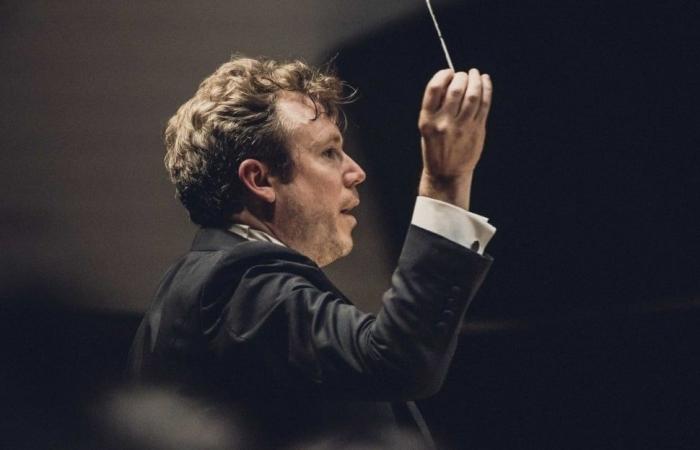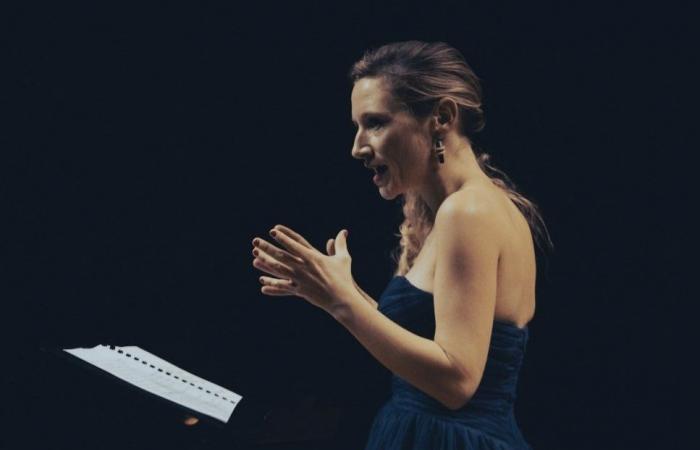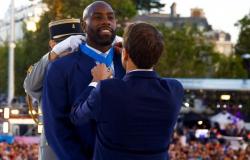More details
Paris. Philharmonic. Great Pierre Boulez Hall. 17-XII-2024. Johann Strauss II (1825-1899): Overture of the Bat; Wiener Blut op. 354; Frühlingstimmen op. 410; Arnold Schönberg (1874-1951): Pelléas et Mélisande, symphonic poem op. 5. Sabine Devieilhe, soprano. Orchester de Paris, conductor: Daniel Harding.
Daniel Harding returns to the Orchester de Paris of which he was the musical director between 2016 and 2019 for a concert entirely devoted to Viennese composers, mirroring the carefreeness of the balls of Imperial Vienna composed by Johann Strauss II and tormented love of Pelléas and Mélisande d’Arnold Schönberg.
It is on an evocation of the “Joyful Viennese Apocalypse” combining both the ending splendor of the Habsburgs and the hopes of a nascent modernity, that this surprising program is constructed which summons Johann Strauss II and Arnold Schoenberg.
With a few days in advance, we could imagine ourselves not in the Grande Salle Pierre Boulez of the Philharmonie de Paris, but in the legendary Musiverein hall in Vienna, for the traditional New Year's concert! Three works constitute this first part. The Opening of the Bat (1873) which draws on the many famous themes of the eponymous opera (The bat) in a medley full of energy, elegance, lightness and sensuality, embellished with polka rhythms, waltz rhythms, or even instrumental solos including the superb painful cantilena of the oboe which appears in hindsight as strangely premonitory…
Wiener blood (1873) composed by Johann Strauss II on the occasion of the princely marriage of the daughter of Emperor Franz Joseph I (and Sissi) to Prince Leopold of Bavaria. Started by the heads of the Quartet playing in the open, soon joined by the small harmony, this Viennese blood cannot lie, which once again highlights all its sensuality, its lightness, its expressive nuances in an impeccable implementation and a sovereign balance.
Spring voices (1883), dedicated to the singer Bianca Bianchi, completes this lively triptych, providing coloratura soprano Sabine Devieilhe with a great opportunity to demonstrate her impressive vocal technique in a particularly voluble register made up of superbly crafted, exalted vocalizations by a moving duet with the transverse flute, despite a somewhat metallic timbre and questionable diction.
Very different, the second part is totally devoted to Arnold Schönberg with the symphonic poem Pelléas and Mélisande. Composed in 1902, it is an eminently complex work with its multitude of themes and its formidable polyphony of density, which represents a real challenge for any conductor who measures up to it, a difficult exercise in direction aimed at maintaining the continuity of the line and escape the danger of the stamps being scattered. A challenge that Daniel Harding bravely takes on, grasping the score head on, masterfully mastering its abundant orchestration through the clarity of the speech and precise inputs. More than a purely narrative reading, let's admit it is quite artificial, Daniel Harding chooses to offer us a vast, perfectly structured symphonic fresco which highlights all the colors (waiting, urgency, drama, mystery), all the themes (that of Mélisande on the oboe, that of Golaud on the horn or of Pélléas on the trumpet) and all the leitmotifs (that of Destiny on the bass clarinet or of Love on the clarinet and violins) on a constantly tense, captivating phrasing, alternating episodes of tension and relaxation, moments of lyricism and passion, dazzling or desolate passages, served by high-end solo performances and clever combinations of timbres (brass, percussion, harp , bass clarinet, horn). A great moment of music!
Photo credits: Daniel Harding © Denis Allard ; Sabine Devieilhe © Ava du Parc
(Visited 2 times, 2 visits today)
More details
Paris. Philharmonic. Great Pierre Boulez Hall. 17-XII-2024. Johann Strauss II (1825-1899): Overture of the Bat; Wiener Blut op. 354; Frühlingstimmen op. 410; Arnold Schönberg (1874-1951): Pelléas et Mélisande, symphonic poem op. 5. Sabine Devieilhe, soprano. Orchester de Paris, conductor: Daniel Harding.
Keywords of this article







